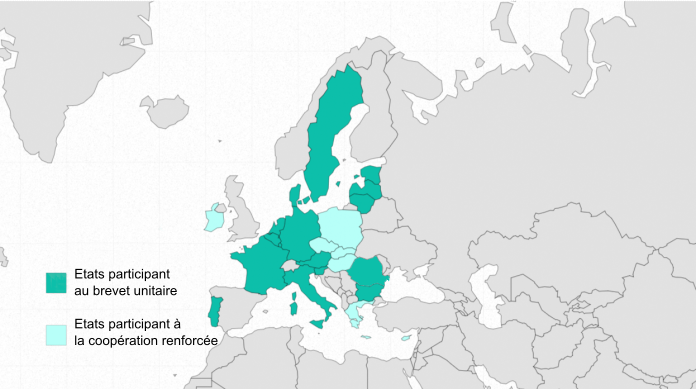The Unitary patent or European patent with unitary effect is an intellectual property right that has been available since June 1, 2023.
As of this date, upon the grant of a European patent, it is possible to request unitary effect from the European Patent Office (EPO). This request allows for the validation of a European patent in a single step across 18 European Union (EU) countries. This simplified procedure only requires, in addition to filing the request, the provision of a translation of the patent into English. This avoids to deal with the offices of each of these 18 countries and the associated translation requirements.
There is a centralized and simplified management of the Unitary patent, as its federal register is managed by the EPO. Licensing and transfer registrations are made easier as there it is no longer needed to go to each national office.
On the opposite side: Countries that have ratified the Unified Patent Court (UPC) Agreement
*Since September 1st, 2024, Romania has become the 18th member state of the Unified Patent Protection system (UPP).

While this simplification of the validation and management procedure for these 18 EU countries may seem advantageous at first glance, there are some drawbacks that, as counsels, we must point out:
- The first is directly related to Brexit: since the United Kingdom is no longer a member of the EU, if you wish to protect your invention there, you still need to go through the traditional validation process with the UK Intellectual Property Office (UKIPO).
- By definition the Unitary patent is ‘unitary.’ Therefore, if a nullity procedure succeeds before the Unified Patent Court (UPC), the Unitary patent could be revoked in all 18 countries it covers.
- Similarly, the flexibility of abandoning certain national parts in favor of more strategic ones to reduce the costs of maintaining the European patent is lost.
- The maintenance costs of a Unitary patent are relatively high and are equivalent to the costs of maintaining three to five national parts of a European patent. Therefore, if you are interested in protecting your invention in only three of the countries covered by the unitary effect, the Unitary patent may not necessarily be the best choice.

